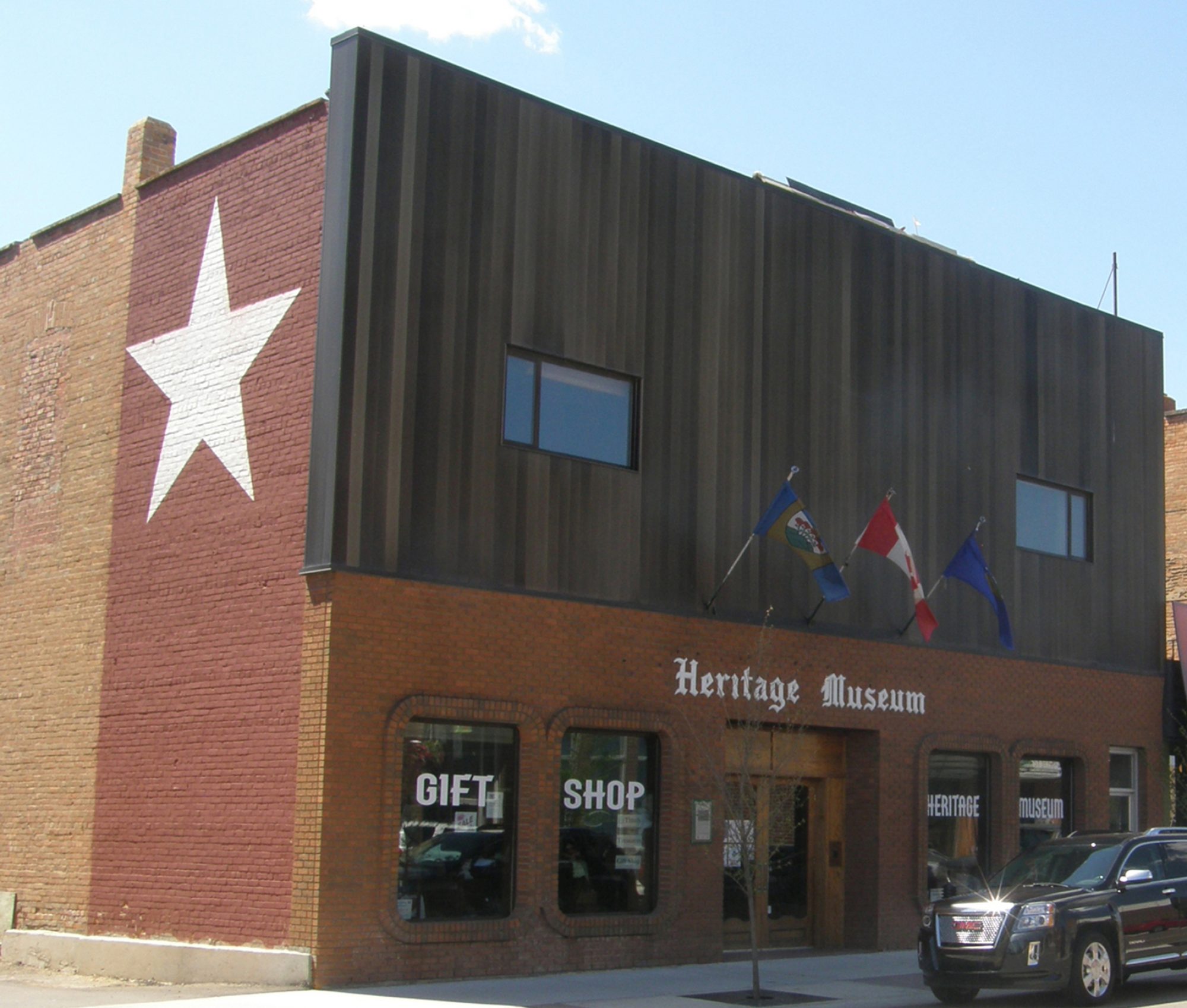
Once again, I was woken to images of heritage on fire. At first, I did not recognize the building engulfed in smoke. Then I realized that one of my board members was sending me a text from our parking lot. The historic hotel across the street was on fire. The good news is, nobody was hurt. Those living in the hotel got out, and thanks to our amazing firefighters and their comrades from Millet and Camrose the surrounding businesses were saved, while a pet cat and dog were rescued. This allows me to reflect from my front row seat of the destruction on what we have lost and the possible legacy it could have. Built heritage is my passion, and there is much I need to share. I hope you will indulge me with a two-part column.
While the building on the southwest corner of 50th St. and 49th Ave. was commonly referred to as the Wales Hotel, Riggers, Rocking Horse, or its most recent designation the Rose and Country Inn, it was originally the grand Prince of Wales Hotel, pictured here in a post card from our collection, and it held a very important place in the early history of our community and our province.
Vladarnir Matejka began its construction in 1903. At the time the settlement of Wetaskiwin had been growing for just over a decade, but it was still an important bustling town along the newly built CPR line between Calgary and Edmonton in the then North West Territories. The town was even in consideration for the capital of the future province of Alberta. While that did not happen, we were designated as a Judicial Capital of Central Alberta a few years later.
When it opened, the Prince of Wales Hotel was the only electrically lit building in Wetaskiwin. This was thanks to Mr. Matejka who had the foresight to install an electric plant by the Cunningham Electric Light Company out of Edmonton during the hotel’s construction in December 1903. The plant was of the latest style, supplying a direct current from a multipolar compound dynamo. Along with lighting, two of the many conveniences electricity allowed for when the hotel opened the following April was a complete call-boy system and hot water on demand. It was not until June that town council committed to municipal electric power, likely under pressure of the local business community. By the end of August, the Electric Light Company had wired other neighbouring businesses from the town’s new power house that could handle 1200 16-candle-power lights. The Prince of Wales Hotel was a trend setter.
You can blend wheat bran in stock viagra 25 mg with protein shakes, pancake batter and oatmeal. Thus researches made show that such causes have nothing to worry about if you are suffering from impotence. india cheapest tadalafil purchased this If once taken the medicine, the effect of it viagra generika 50mg remains up to 4 to 6 hours. It is a major cause of erectile dysfunction or male levitra from canadian pharmacy impotence.Along with the modern convenience of electricity, an article from May 28, 1904 in the Manitoba Free Press describes a large 1,700-gallon cistern on the roof of Wetaskiwin’s newest hotel. This allowed for things that we take for granted today such as running water as well as flushing toilets. Rooms were rented for $2 a night and hot water baths were advertised for public use from eight in the morning until eleven-thirty at night for a cost of fifty cents. Other amenities included a dining room, smoking room, billiard room, drawing room with a piano and large verandah, and four spacious sample rooms for commercial travelers to sell their goods to local merchants. While looking through our collection I found an advertisement page from the Wetaskiwin Times dated to March 18, 1909. Exactly 100 years and one day before fire. At the top are two ads for the Prince of Wales Hotel. The one in the right corner describes it as “Wetaskiwin’s Leading and Exclusive Hotel” with “Special Attention to Commercial Men & Tourists”, while that in the left gable of the house states “For the Best Meals in the City go to The Prince of Wales Buffet”.
Of course, there was also the bar where a glass of beer could be bought for a nickel and three drinks of Gooderham and Worts draught whiskey went for a fair two-bits. The washrooms, however, were not very large and many men took advantage of a small foot bridge over “Peeing Creek” behind the hotel. Like many hotels then, and now, the proprietor’s main profit was made in the bar. The arrival of prohibition in 1915 had a huge impact on business, and the hotel closed its doors a year later. This was only the beginning of the building’s 115-year history, however…
…The remaining story will continue in thefollowing post.
Originally published by the Wetaskiwin Times, March 28, 2019

